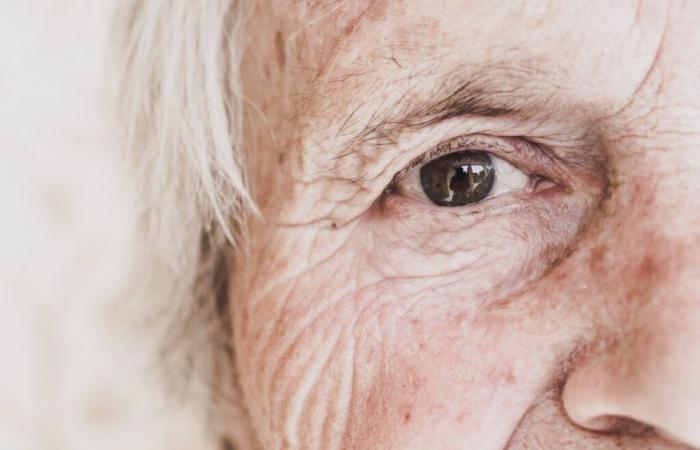MADRID, 7 May. (EUROPA PRESS) –
A new study of the Faculty of Medicine of the University of Washington in San Luis (United States) examines the decisions made by healthy research volunteers when they are given the opportunity to know their risk of developing dementia by Alzheimer’s.
The researchers found a great discrepancy between the percentage of participants who said they would like to know their risk if these estimates were available and the percentage that agreed to know these results when they were given the real opportunity. The study is published in ‘Jama Network Open’.
This knowledge could help researchers design studies that offer the option to receive results without pressing participants to choose one option instead of another. The study also emphasizes the importance of ensuring that participants really want the results of their research, since a hypothetical interest does not necessarily translate into the desire to know their risk of dementia by Alzheimer’s when they are really offered.
“In general, there is a tendency to provide participants and research patients with the results of their tests, even in situations where nothing can be done with them,” argues the main author, Dr. Jessica Mozersky, an attached teacher of Medicine at the Bioethics Research and Researcher Research Center at the Alzheimer’s disease research center Charles F. and Joanne Knight, both in Washu Medicine.
“However, our study suggests that, in delicate cases, such as estimating the risk of developing a weakening and mortal disease, people should have the option of not knowing it,” he says.
In recent years, the National Academies of Sciences, Engineering and Medicine have recommended that, in general, research studies designs include the option to return the results of the tests to the participants, even when they cannot be applied.
Similarly, a committee of participants in studies, their caregivers and members of Dementia Defense Organizations recently proposed a declaration of rights for participants in investigations on Alzheimer’s disease that advocates access to these results.
At the same time, ethical concerns persist due to the possibility of causing anxiety and other damage to participants who find out that they have a high risk of developing a weakening and incurable dementia.
Unlike preventive options for people who find out that they have a high genetic risk of certain types of cancer, for example, there are currently no approved preventive treatments or medical interventions available to prevent dementia caused by Alzheimer’s disease.
To better understand who has a lower risk of dementia by Alzheimer’s and why, Mozersky and his team resorted to the long -term research of the Knight Center for Research of Alzheimer’s disease by Washu Medicine. For the current study, the Mozersky team focused on cognitively normal volunteers that underwent a battery of tests, including genetic tests, blood extractions and brain scanners, from which researchers could estimate their probability of developing dementia due to Alzheimer’s disease during the next five years.
Participants originally joined the long -term study understanding that they would not have the option to receive their own risk results. Even in the years, many have expressed a theoretical interest in knowing their results. The study, co -directed with Sarah M. Hartz, professor of psychiatry at Washu Medicine, offers results to a subset of participants in the Memory & Aging project (274 participants) to evaluate the psychological impact of knowing their risk and the factors they consider when making that decision.
Before deciding, the participants received an information guide that explained how the risk is estimated and listed some examples of the advantages and disadvantages of knowing their results. For example, an advantage is that some people can discover that their risk is less than expected. And if the results of biomarker tests suggest that a participant has a high risk of developing dementia due to Alzheimer’s disease in the next five years, it could be eligible to participate in clinical trials of research prevention strategies. On the other hand, knowing the high risk can cause anxiety or hinder the hiring of some types of insurance.
When the results were theoretical, 81 % of the people in the broadest investigation already claimed that it would prefer to know. On the other hand, when the real results were offered to the 274 participants of the memory and aging project, only 60 % chose to receive them. Participants with a family history of Alzheimer’s and those who self -identified as African Americans were more likely to reject the results.
A sample of participants who denied their results was subsequently interviewed, and the most common reasons given included that knowing it would be a burden to themselves or their relatives, their own experiences and negative perceptions of the dementia of Alzheimer’s disease, which feel good with their memory today, which are already prepared for the disease and that there is still uncertainty in the predictions of the risk of disease.
“The lack of preventive treatments is also an important factor in the refusal to receive the results of biomarker tests among people without symptoms of dementia by Alzheimer’s,” says Mozersky. “When we interviewed some participants to better understand their decision not to know, many commented that a new effective treatment could change their minds, if available.”
Since the results are only available through research studies, researchers do not incorporate them into the participant’s medical history. Even so, they could appear in a patient’s medical history if he shares them with his doctor. “We plan to continue our research on the complexities of these questions, especially as the delivery of the results to the research participants becomes more common, even if they still cannot be implemented,” Mozersky concludes.






